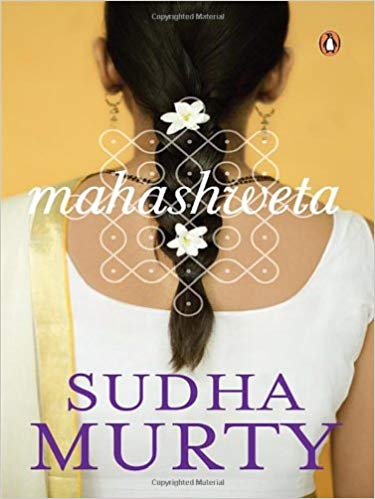Mahashweta

The book starts with a promising love story of a beautiful and talented girl Anupama and the good looking doctor Anand who is passionate about his profession. Anand falls for Anupama the moment he sets his eyes on her. He then watches her perform in a fundraising play ‘Kadambari’ where she plays the role of ‘Mahashweta, the beautiful princess’ and decides to marry her. Anupama too falls for him but considers the relationship impractical due to the huge gap in their social and financial status. Anupama is the daughter of a poor village school teacher while Anand belongs to a wealthy business family.
The unusual pairing of Anand and Anupama is solemnized amidst mixed feelings on both the bride and the groom side. While Anupama’s stepmother is jealous of her marrying into a wealthy family, Anand’s domineering mother allows her only son’s wish just for the sake of keeping her goodwill with him.
Anupama tries her best to adjust in her new home and family but feels stifled in the dominating presence of her mother-in-law and arrogant sister-in-law. Anand’s love sees her through but her real struggle starts when he goes abroad for higher studies and she discovers a white patch on her feet that is later diagnosed as an untreatable and progressive autoimmune condition known as Leucoderma.
The setting of the novel is laced with traditional Indian sensibilities and the author skillfully paints a vivid picture of the places and characters. The book draws the reader in from the very beginning and makes for a quick read. I, for one, finished it in one go, definitely not something I can boast about a lot. The events are relatable in the Indian context and present a mirror to the way our society thinks and deals with such issues.
However, the real beauty of the book lies in the way the protagonist deals with the ups and downs of her own life. When the whole world shuts its doors on her, how she carves out her new identity and sails through life’s storms with her independent thinking and perseverance, is portrayed beautifully. The author also dwells on the lack of fairness in our society where wayward women like Anupama’s sister-in-law may live a happy life and someone as sober and conscientious like Anupama has to face a difficult destiny.
The book helps to understand the perspective of a person who suffers from such a disorder which may not be life-threatening but equally devastating in terms of social impact. It also enables to reflect on the possibility of living with dignity despite it. I recommend this book to all for its realistic and emotional appeal.
